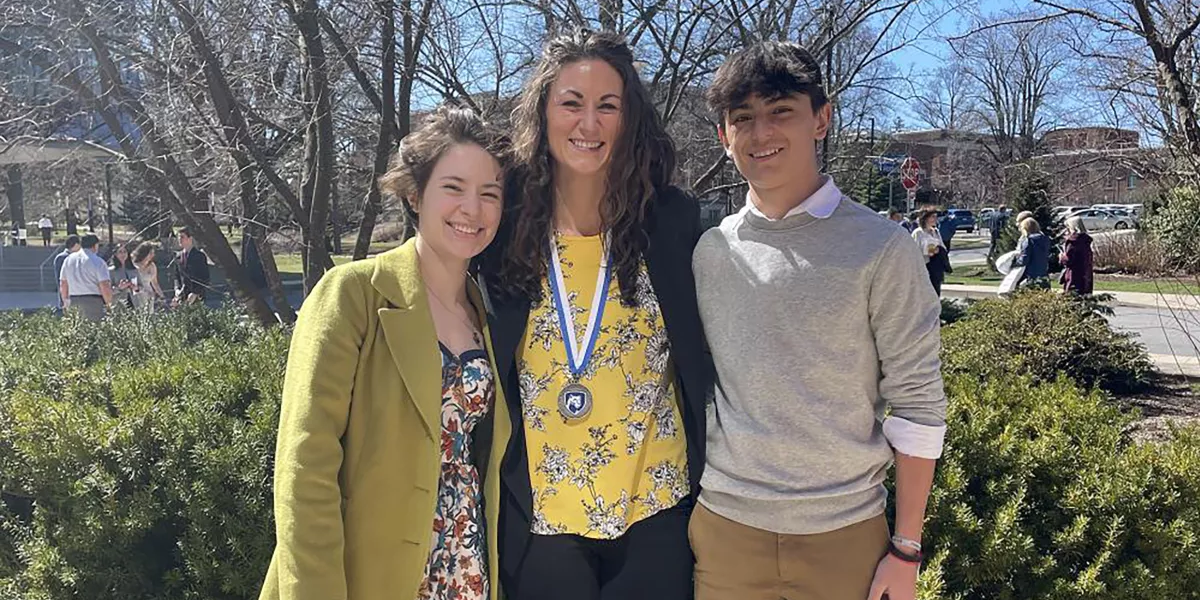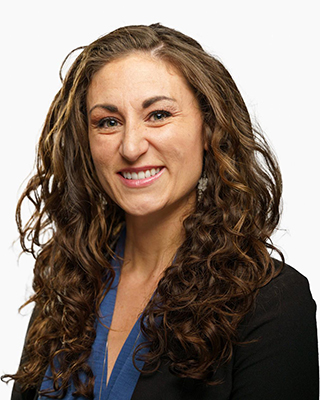
Laura Gamble took her first college class 20 years ago.
Today, the mother of four teenage children who has been happily married for 19 years finds herself in the “final stretch” on the road to graduating this May with a Bachelor of Arts in Psychology and a certificate in diversity studies — both from Penn State World Campus.
Gamble — a first-generation college student — said “life experiences and family joys,” such as raising her children, delayed her initial pursuit of a bachelor’s degree for two decades. Though she began her higher education journey pursuing music education, in May 2021, Gamble completed her associate degree in psychology at Casper College online. She later learned about Penn State World Campus’ “premier psychology program.” She applied soon after and was happy to become a Nittany Lion after receiving her acceptance letter.
For Gamble, the learning experience that World Campus offers is the perfect way to pursue her degree within her busy life.

“I have found the virtual experience really perfect for me as I have four kids involved in activities, and getting to and from campus with our lives would be really hard,” she said. “Plus, I’m a self-starter and like to work at my own pace, so learning virtually has been great for me and how I engage with material.”
Gamble is involved heavily in Penn State World Campus beyond the classroom as well, serving as an American Psychological Association campus ambassador, editor of the “Mind Over Matters” Psychology Club newsletter, and a research assistant in the Online Students of Psychology Lab led by Anthony Nelson, Penn State associate professor of psychology and director of the Department of Psychology’s World Campus programs.
Gamble’s involvement with the Online Students of Psychology Lab, in particular, allows her to learn and develop a greater appreciation for diverse perspectives on psychology-related research on issues of bias, equity, and gender in highly controlled religious environments. She hopes to continue working in Nelson’s lab following graduation, during which she will make more professional connections while applying to doctoral psychology programs.
“While my involvement often requires more than 30 hours a week (of my time), it is important in my development as a learner and a future leader and shows my children that anything is achievable with enough perseverance,” Gamble said.
Gamble also is an intern in the U.S. Department of State’s Office of Global Women’s Issues via the Virtual Student Federal Service internship program. Her work there involves “amplifying women on the margins and the work that they’re doing” on climate initiatives. As an intern, she is involved in conducting research, community engagement, writing, podcast production, and creating, expanding, and building a platform for women to speak and be heard.
“I bring a social science perspective to a really scientific-focused internship,” Gamble said. “The role gives me opportunities to strengthen my interpersonal skills as it involves connecting, networking, and building relationships. It allows me to grow new skills in areas where I previously had no experience, like working with a government agency and podcast planning. It gives me the opportunity to gain experience in new areas and grow areas I have foundational skills in.”
Most recently, she helped plan “The Innovation Station: Girl Power 3,” a virtual event that showcases youth-led innovations in equity, climate storytelling, and sustainable living. Gamble and another intern wrote the introductions of the panel speakers and sat in on important meetings to help plan the event.
“There’s still a lot of underrepresentation for women in STEM fields, women in leadership, and women who are invited to the table in addressing climates challenges,” Gamble said. “What we are finding is when women are involved, they tend to be at the forefront of a lot of climate initiatives that are having a large impact — and when they are involved, outcomes tend to be considerably better than when they are not. Being a part of that and moving that conversation forward is an incredible thing.”
Gamble notes that her work duties often center around intersectionality, further validating her belief that the field of psychology is stronger when it stays “aware of the intersections of every race, class, gender, sexuality, and every single part of people that gives nuance.”
“It’s incredibly important to take the posture of a learner,” Gamble said. “My co-worker is a traditional college-aged student, and I am not — I’m 38 and have been in and out of academia for a while — yet the things I learn from her are really valuable because her perspective on the world and on issues that matter are different from mine. I think it’s important that as we get older, we don’t assume we know more just because we’ve been around longer. I can learn from her as much as she can learn from me.”
In Gamble’s mind, all the experiences she has had in and beyond the classroom have given her the opportunity to “grow and increase her understanding (of psychology) over time,” which is vital to her being successful in the discipline and which represents what she hopes is a “continuing trend of growth in psychology that (makes it) more inclusive, more understanding, and more human.”
Learn more about the Bachelor of Arts in Psychology offered online in partnership with the Penn State College of the Liberal Arts through Penn State World Campus.
Media Contact:
Mike Dawson
mdawson@psu.edu
